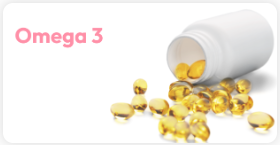Supplement Overuse: 7 Alarming Truths You Must Know

Supplement overuse led to an alarming episode for Australian resident Simon Bogemann in January 2025, triggering severe cramps and constant pricking in his hands and feet after he unknowingly consumed excess vitamin B6 from multivitamins and magnesium supplements.
A subsequent blood test revealed that his vitamin B6 levels were 36 times higher than the recommended range, leading to peripheral neuropathy, a type of nerve damage.
His case is a reminder that even commonly used supplements, when taken in excess, can quickly spiral into a medical emergency.
Supplements are often taken with the belief that they can only do good but the line between benefit and harm isn’t always clear. In the pursuit of better health, many unknowingly push their bodies toward imbalance, sometimes with dangerous consequences.
How does something beneficial turn harmful? Misinformation, aggressive marketing and the assumption that “more is better” often drive excessive use.
Table of Contents
Are you crossing the line between help and harm?
Supplement overuse has quietly become one of the biggest yet least-discussed wellness challenges in India. As the supplement industry explodes with aggressive social media trends, influencer-driven claims, and “more is better” attitudes many people unknowingly flirt with toxicity, organ stress, and irreversible side effects.
Across the world, clinicians report a rise in vitamin toxicity, supplement-induced liver injury, hypercalcemia, and kidney strain linked to unregulated intake.
In our pursuit of better health, many forget one fundamental truth:
Anything beneficial becomes harmful when the dose is wrong.
1. Supplement overuse and the rise of the pill-popping culture
In our wellness-obsessed era, supplements have become symbols of commitment, discipline, and self-care. From Instagram reels to fitness influencers, supplements are portrayed as shortcuts to immunity, muscle growth, weight loss, gut health, mental clarity, and longevity.
But what gets overshadowed is the risk. Today:
- People buy supplements without testing.
- Dosages are self-prescribed.
- “Natural” is assumed to mean “safe.”
- Stack recommendations from influencers are followed blindly.
- Labels are barely read.
- Interactions with medications go unnoticed.
This mindset reinforces a major misconception:
Health does not come in a bottle.
Many people use supplements to compensate for poor sleep, stress, inactivity, and unhealthy diets hoping quick fixes can replace long-term habits. But without medical guidance or biological need, supplement overuse can push the body toward imbalance faster than we realise.
2. What science says about supplement overuse
A. Calcium supplements and heart health
A decade-long study found that excess calcium supplementation can increase the risk of arterial calcification, contributing to hardened arteries and potential heart complications. Experts now emphasise prioritising calcium from whole foods while using supplements only when medically indicated.
B. Vitamin D toxicity is more common than you think
Recent case reports (2023–2024) highlight rising vitamin D toxicity due to:
~ 60,000 IU weekly consumption without medical need
~ Simultaneous intake of vitamin D + calcium
~ Influencer-driven high-dose protocols
One case involved an 89-year-old who died from hypercalcemia caused by vitamin D overdose, proving even essential vitamins can be dangerous when misused.
C. Protein supplements and kidney strain
The Indian Council of Medical Research (ICMR) has warned about excessive protein intake especially from powders straining kidney function. This risk is higher for people with:
• Pre-existing kidney issues
Individuals with reduced kidney function or undiagnosed kidney disease are more vulnerable to protein overload. The kidneys are responsible for filtering waste products generated from protein metabolism. When protein intake is too high, it increases the filtration load, potentially worsening kidney damage, raising creatinine levels, and accelerating the decline in kidney function. Even mild kidney impairment can make high-protein diets risky without medical guidance.
• High-protein + low-fiber diets
A diet rich in protein but lacking adequate fiber is a common but harmful pattern. While protein increases metabolic waste that the kidneys and liver must process, the lack of fiber slows digestion, disrupts gut health, and increases inflammation. This imbalance can lead to digestive discomfort, constipation, higher toxin buildup, and metabolic stress. Over time, this combination may increase the burden on the kidneys and digestive system, especially when paired with protein powders.
• Long-term dehydration
Protein metabolism requires water for the kidneys to properly eliminate byproducts like urea. When a person consumes high levels of protein but does not drink enough water, it forces the kidneys to work harder. Chronic dehydration can thicken the blood, reduce filtration efficiency, and elevate kidney stress markers. Gym-goers who sweat excessively without replenishing fluids are particularly at risk of protein-associated kidney strain.
• Excessive gym-based protein loading
Many fitness enthusiasts consume protein in quantities far beyond what the body can utilize—sometimes 2–3 scoops per day, plus high-protein meals. This “more is better” mindset can significantly increase the metabolic load on the kidneys and liver. Excess protein does not convert directly into muscle; instead, it gets broken down and excreted, creating unnecessary waste byproducts. Over time, this habit can lead to digestive issues, dehydration, insulin resistance, and increased kidney filtration demands.
D. Herbal supplements and liver toxicity
Natural does not mean harmless. Concentrated herbal extracts today are far more potent than traditional herbs used in Ayurveda or folk medicine.
Research from 2024 shows:
~ Ashwagandha toxicity cases rising due to high-dose commercial extracts
~ Curcumin supplements linked to liver injury (due to poor absorption + high concentration)
~ Green tea extract associated with severe liver inflammation
~ Garcinia cambogia implicated in metabolic complications and hepatic injury
Even harmless-sounding herbs, when consumed in concentrated extract form, can burden the liver and kidneys.
3. How supplement overuse turns benefits into harm?

The shift from benefit to harm happens due to:
1) Misinformation : Blogs, videos, and influencers often promote supplements without scientific evidence or context.
2) Poor understanding of “bio-individuality” : Each person has unique needs based on:
~ Age
~ Sex
~ Genetics
~ Hormonal health
~ Lifestyle
~ Pre-existing conditions
~ Medication use
A supplement perfect for one person can be dangerous for another.
3) Aggressive marketing : Brands use strong emotional triggers:
- “Boost immunity instantly”
- “Burn fat fast”
- “Get glowing skin in 15 days”
- “Increase muscle size quickly”
These claims manipulate without educating.
4) The illusion that “more is better”: Many assume doubling the dose speeds results—even with vitamins that accumulate in the body.
5) Lack of medical guidance : Self-prescribing is the biggest reason behind supplement-related toxicity.
4. Why natural isn’t always safe: The hidden dangers of supplement overuse
Even water becomes harmful when consumed in excess. Herbs follow the same rule. The supplement industry now uses standardised extracts, meaning:
- Higher potency
- Higher concentration
- Faster absorption
- Stronger biological impact
Which also means: Higher risk.
Common examples:
Ashwagandha
High-dose extracts have been associated with: Liver injury, Thyroid imbalance, GI discomfort
Turmeric/Curcumin Extracts
Linked to: Liver toxicity, Iron absorption issue, Drug interactions
Green Tea Extract
In high concentrations : Causes hepatotoxicity, Increases metabolic stress
Garcinia Cambogia
Linked to: Metabolic acidosis, Liver injury, Severe nausea
The issue lies not in the herb but in the over-concentrated, unregulated extract form.
5. Rethink your supplements: Smarter ways to avoid supplement overuse
Make smarter choices with these simple guidelines before adding supplements to your routine:
1) Assess your needs: Not everyone requires supplements and excess intake can pose a health risk. Always consult a healthcare professional and get tested before incorporating them into your regimen.
2) Food-first approach: Supplements should enhance, not substitute a balanced diet. Instead of solely relying on supplements, prioritize a diverse diet rich in vegetables, fruits, lean proteins and healthy fats.
3) Stick to recommended dosage: Follow evidence-based guidelines and approved dosage recommendations to avoid health risks.
4) Opt for quality over hype: With minimal regulation, many supplements contain hidden ingredients or misleading labels. Prioritize third-party tested products verified for purity and safety through trusted platforms.
5) Don’t fall for FADs: Many supplements thrive on marketing rather than scientific backing. Always look for evidence-based research before adding them to your routine.
6. Supplement overuse risks in popular products
Supplements can be essential, but it’s their misuse that’s the real problem. Here’s a look at some of the most commonly consumed supplements, their benefits and the potential dangers of excessive use.
| Supplement | Common use | Unsupervised & excess risks |
| Multivitamins | General health & nutrient support | Fat-soluble vitamin toxicity, nutrient imbalances |
| Vitamin D | Bone health, immunity | Hypercalcemia, kidney damage |
| Calcium | Bone strength, osteoporosis prevention | Kidney stones, heart issues, poor mineral absorption |
| Magnesium | Muscle relaxation, nerve function | Diarrhea, low blood pressure, irregular heartbeat |
| Protein | Muscle growth, weight management | Kidney strain (if predisposed), digestive issues, insulin resistance |
| Omega-3 | Heart health, brain function | Blood thinning, excessive bleeding risk |
| Probiotics | Gut health, digestion support | Bloating, infections (for immunocompromised), gut imbalance |
7. When supplements become dangerous (real-world examples)
B6 Toxicity → Nerve Damage
Excess B6 can cause: Numbness, Tingling, Loss of coordination, Neuropathy
Symptoms sometimes take months to reverse.
Vitamin D Toxicity → Heart & Kidney Damage
Leads to: Hypercalcemia, Confusion, Kidney failure, Arrhythmias
Often happens through self-prescribed high doses.
Protein Overconsumption → Kidney Stress
Common in gym-goers taking multiple scoops daily.
Herbal Extract Toxicity → Liver Injury
One of the fastest-growing issues reported in 2023–2025 clinical papers.
India needs a supplement reality check
India’s supplement market is expected to cross USD $10 billion by 2027. But regulation hasn’t kept pace.
Many products contain:
- Mislabelled doses
- Undisclosed fillers
- Contaminants
- Heavy metals
- Unregulated ingredients
This is exactly why independent, transparent, third-party verification like the Pink Tiger standard has become non-negotiable. Pink Tiger helps consumers access supplements that are genuinely clean, label-accurate, and tested for safety, bridging the gap in an industry where oversight is limited.
Wake up, India!
Be informed. Not influenced.
Before you take any supplement, ask yourself:
- Do I really need this?
- Has a doctor recommended it?
- Have I checked my blood levels?
- Is this brand verified?
- Is my dose safe?
- Am I using this as a shortcut for lifestyle issues?
Explore the range of Supplements verified by Pink Tiger




Final Thought
Your health choices should be guided by knowledge, not driven by hype. Wake up, India! Be informed, not influenced. With the growing supplement industry, it’s easy to get swayed by marketing but being informed is the real power.
Before adding a supplement to your routine, ask yourself: Do I really need this?
Always consult a qualified healthcare professional to assess your actual health needs. If supplementation is necessary, choose trusted, third-party-tested options to ensure safety and effectiveness. You Care Lifestyle can help you access clean, verified products so you can make confident, well-informed choices with the Pink Tiger verified products.
Health is an investment, not a gamble. Supplement with care.
Frequently Asked Questions (FAQs)
1. What exactly is supplement overuse?
Supplement overuse occurs when someone consumes vitamins, minerals, herbs, or protein powders in amounts that exceed what their body can safely use. This often happens when people follow high-dose trends, combine multiple supplements with overlapping ingredients, or continue taking them for months without checking their actual needs. When the body receives more nutrients than it can process or store, it can lead to toxicity, organ strain, and nutrient imbalances that may trigger symptoms like fatigue, nerve issues, digestive problems, or liver and kidney stress. What begins as an attempt to improve health can quickly shift into unintended harm when supplements aren’t used responsibly.
2. Can “natural” supplements like herbs also cause side effects?
Yes. Many herbal supplements today are concentrated extracts, which are significantly stronger than traditional herbs. In excess, even popular options like ashwagandha, curcumin, green tea extract, and garcinia cambogia have been linked to liver toxicity, digestive issues, or hormonal disruptions. “Natural” does not automatically mean risk-free.
3. What are the early signs that I may be taking too many supplements?
Common warning signs include unexplained fatigue, nausea, tingling or numbness, digestive issues, headaches, muscle cramps, or changes in mood. In severe cases such as excess vitamin D or calcium symptoms may include intense thirst, confusion, irregular heartbeat, or kidney discomfort. If you notice unusual symptoms, stop the supplement and seek medical advice.
4. Can supplements interact with medications?
Yes, and these interactions can sometimes be serious. Certain supplements can change how medications are absorbed, metabolised, or eliminated by the body, altering their effectiveness or increasing side effects. For example, magnesium can interfere with thyroid medications, reducing their absorption. Vitamin K can counteract blood thinners like warfarin, increasing the risk of clots. St. John’s Wort can reduce the effectiveness of antidepressants, birth control pills, and even some heart medications by speeding up drug metabolism. Even seemingly harmless options like probiotics may interfere with immunosuppressive drugs in vulnerable individuals. Because of these interactions, it’s important to tell your doctor about all supplements you take so they can adjust medication doses or suggest safer alternatives.
5. Is it safe to take multiple supplements together?
It can be safe, but only when done thoughtfully and with proper guidance. Many supplements contain overlapping ingredients for instance, a multivitamin may already include vitamin D, B-complex, magnesium, zinc, or iron. When combined with additional standalone supplements, the cumulative intake can exceed safe levels, leading to toxicity or nutrient imbalance. Some combinations also compete for absorption; for example, high-dose calcium can reduce iron and zinc absorption, while excessive zinc can deplete copper. On the other hand, certain supplements work well together when prescribed correctly. A healthcare professional can evaluate your diet, deficiencies, medication use, and health goals to create a simplified, non-conflicting supplement plan that avoids duplication and ensures your body receives what it actually needs.
Disclaimer : This content is for informational purposes only and is not a substitute for professional medical advice, diagnosis, or treatment. Always consult a qualified healthcare provider for any questions or concerns regarding your health.
References:
1) Patel, V., Aggarwal, K., Dhawan, A., Singh, B., Shah, P., Sawhney, A., & Jain, R. (2023). Protein supplementation: the double-edged sword. Baylor University Medical Center Proceedings, 37(1), 118–126. https://doi.org/10.1080/08998280.2023.2280417
2) Muneer, S., Siddiqui, I., Majid, H., Zehra, N., Jafri, L., & Khan, A. H. (2022). Practices of vitamin D supplementation leading to vitamin D toxicity: Experience from a Low-Middle Income Country. Annals of Medicine and Surgery, 73. https://doi.org/10.1016/j.amsu.2021.103227
4) Office of Dietary Supplements – magnesium. (n.d.-b).
https://ods.od.nih.gov/factsheets/Magnesium-HealthProfessional/
5) Lange, K. W., Nakamura, Y., Gosslau, A. M., & Li, S. (2019). Are there serious adverse effects of omega-3 polyunsaturated fatty acid supplements? Journal of Food Bioactives, 1–6. https://www.sciopen.com/article/10.31665/JFB.2019.7192
6) Harvey, N. C., D’Angelo, S., Paccou, J., Curtis, E. M., Edwards, M., Raisi-Estabragh, Z., Walker-Bone, K., Petersen, S. E., & Cooper, C. (2018). Calcium and vitamin D supplementation are not associated with risk of incident ischemic cardiac events or death: findings from the UK Biobank Cohort. Journal of Bone and Mineral Research, 33(5), 803–811. https://pubmed.ncbi.nlm.nih.gov/29314248/
7) Grajecki, D., Ogica, A., Boenisch, O., Hübener, P., & Kluge, S. (2022). Green tea extract-associated acute liver injury: Case report and review. Clinical liver disease, 20(6), 181–187. https://pmc.ncbi.nlm.nih.gov/articles/PMC9745259/
8) Siddiqui, S., Ahmed, N., Goswami, M., Chakrabarty, A., & Chowdhury, G. (2021). DNA damage by Withanone as a potential cause of liver toxicity observed for herbal products of Withania somnifera (Ashwagandha). Current Research in Toxicology, 2, 72–81. https://pubmed.ncbi.nlm.nih.gov/34345852/
9) Smirnova, E., Moniruzzaman, M., Chin, S., Sureshbabu, A., Karthikeyan, A., Do, K., & Min, T. (2023). A Review of the Role of Curcumin in Metal Induced Toxicity. Antioxidants, 12(2), 243. https://doi.org/10.3390/antiox12020243